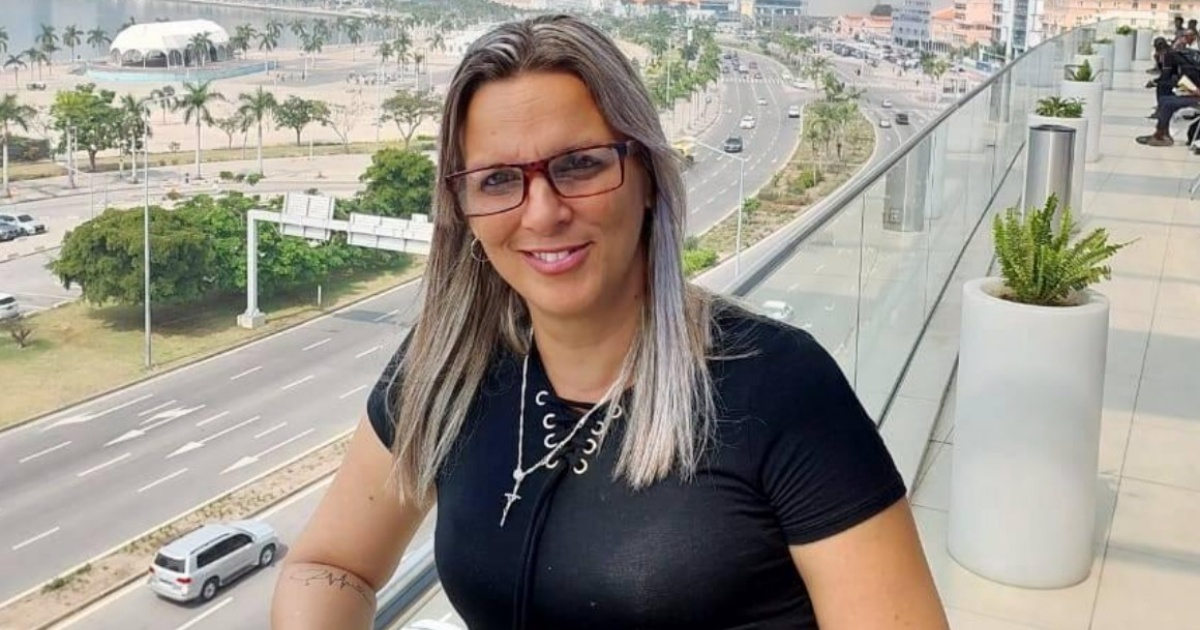
The General Health Directorate of Las Tunas reported that, considering the "dissatisfaction" of the family, it decided to create a medical commission to analyze and clarify the death of Yaneidys Barea Gregori, a Psychology graduate who recently passed away after returning from Angola.
Without making direct reference to malaria, the disease that would have ended the life of the Cuban professional, the Health Department of Las Tunas did refer to the review of the "compliance with medical protocols" carried out on Barea Gregori.
The note specified that Yaneidys Barea Gregori - who was a native of the municipality of Jesús Menéndez in Las Tunas - died after returning from the Republic of Angola, where she was "on a personal work contract," a statement that implicitly denies that she was in Africa as part of a mission.
We extend our deepest condolences to their family members and commit to rigorously analyzing the procedures carried out, as well as providing a response on the results," concluded the entity without further details.
At just 40 years old and after spending 18 months in the African nation, Barea Gregori passed away on July 4th. Immediately, relatives and friends of the deceased demanded justice, claiming that there was a failure in following the protocols for those returning from African countries and that the illness could have been treated early and effectively.
In an extensive publication on July 7th, Sandra Reyes Gregori, sister of the deceased Cuban, detailed the nightmare experienced by her family.
Yaneidys Barea arrived in Cuba on June 20th and on the 24th, she underwent a thick blood smear analysis, which all travelers coming from Africa must undergo, as it serves to confirm or rule out malaria.
On Tuesday the 25th, Yaneidys Barea began to experience symptoms such as fever, muscle pain, and nausea. Over the following days, her symptoms persisted and grew stronger, but since they had not been notified, they thought the result was negative.
Given the high incidence of Dengue and Oropouche in the municipality, they thought that what he had was that. During the day, he did not have so many symptoms, but at night they became stronger.
On Sunday the 30th, she began to have shortness of breath and the color of her urine changed significantly. When she went to the doctor, she was admitted to a ward for patients with dengue. It was on July 2nd that the doctors realized that the initial sample for the thick drop test had never been sent for processing.
From then on, everything went downhill. Once in the intensive care unit, despite receiving all the necessary attention according to their medical condition, it was already insufficient, as the illness was causing their organs to fail, leading to a cardiac arrest that caused their death.
It was only confirmed that he had malaria when the analysis was done between 8 p.m. on Wednesday, July 3, and 2 a.m. on Thursday, July 4.
"The only mistake my sister made was to trust the healthcare system, that same system caused her to lose her life due to errors and negligence by many of the people who treated her," detailed Sandra Reyes.
Eight days passed from when the sample was taken until it was truly known that the person had malaria. During that period of time, the first sample taken was stored.
"Nothing will bring her back, but justice must be served because what happened to my sister was a murder," Reyes Gregori concluded.
In another extensive post on Facebook, Juli Elena Jareno made it clear that the alleged free healthcare advocated by the communist regime makes no sense when it costs the lives of innocent people due to a malfunction in the system.
Jareno expressed that the lack of medical equipment and supplies, the precarious conditions of the facilities, and above all, the lack of interest and professionalism, have proven that the price paid for the free healthcare in Cuba is very high.
He reiterated, also, that in this case despite receiving medical attention, the diagnosis and treatment were delayed due to the late delivery and analysis of the essential blood tests. Yaneidys received medical attention, but it was already too late.
Health protocols for treating malaria emphasize the importance of conducting urgent blood tests to identify the type of Plasmodium and apply the appropriate treatment. In this case, without these timely tests, the disease progressed and eventually took his life.
The death of Yaneidys Barea Gregori becomes a new urgent call to improve the management and operation of the healthcare system in Cuba, all while the regime continues to send doctors to fulfill missions in various countries around the world.
Malaria in Cuba
This is not the first case of malaria detected in Cuba so far this year. In February, the Pedro Kourí Institute of Tropical Medicine (IPK) in Havana confirmed the diagnosis of an imported case of malaria in a Cuban who arrived from a country in Africa at the end of December, although it was not until January 26 that health authorities confirmed the case.
It was a non-compliant health patient who arrived on December 24 in the municipality of Jatibonico, in Sancti Spiritus, also from Angola, as Dr. Carlos Ruiz Santos, director of the Provincial Center for Hygiene, Epidemiology, and Microbiology of that province, specified in that case in statements to the official media Escambray.
Just over a month after that first diagnosis, health authorities confirmed a new case in Guantanamo, breaking decades of absence of that disease on the island.
The epidemiologist and Deputy Director of Epidemiology at the Provincial Center for Hygiene, Epidemiology, and Microbiology in that province in the easternmost part of the country, Leonel Heredia Carpintrú, clarified that it was an imported case, and that local transmission was not present in the territory.
What do you think?
COMMENTFiled under: